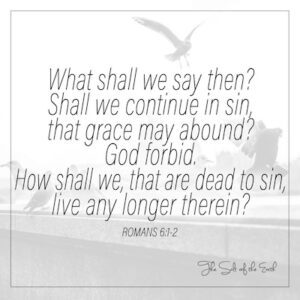In Colossians 1:6, Paul wrote to the saints at Colosse that they knew the grace of God in truth. What does it mean, to know the grace of God in truth?
What does it mean to know the grace of God in truth?
They knew the grace of God in truth (Kolosa 1:6)
The saints at Colosse accepted the Gospel of Jesus Christ. When they heard the words of the gospel and learned about Jesus Christ, the Son of God and Savior of humanity, ua ti'aturi ratou i te mau parau ta ratou i faaroo. Ua ti'aturi ratou e, o Iesu Mesia te Tamaiti a te Atua e te Faaora o te taata nei.
Ua farii ratou ia Iesu Mesia, Te mau nota, e ua fanau-faahou-hia i roto i te Mesia.
Na roto ia Iesu Mesia ua faahau ratou e te Atua e ua faaho'i-faahou-hia mai (Faaorahia) no roto mai i to ratou huru hi'a e ua riro mai ei mau tamarii na te Atua (e tano te reira no te tane e te vahine.
Mai taua taime ra, ua mâtau ratou i te aroha o te Atua i roto i te parau mau.
E mea faufaa ia ite i te aroha o te Atua i roto i te parau mau. E mea faufaa ia ite eaha te auraa o te aroha mau o te Atua e eaha te aroha mau o te Atua.
E rave rahi ekalesia e poro nei i te aroha hape o te Atua. This false grace doesn’t call the people to repentance and sanctification but causes Christians to remain carnal and become lukewarm and eventually apostate from the faith.
What’s the grace of God?
- The grace of God is that God sent His Son and through His redemptive work and His blood and by faith in His Name we are saved.
- The grace of God is that we are reconciled to God by faith in Jesus Christ and regeneration in Him.
- The grace of God, that we have become holy and righteous by His blood, and that we receive the Holy Spirit.
- The grace of God, that we are seated in Christ and have the ability to become like Him.
- Yes the grace of God, that the Gentiles have become fellow heirs and of the same body and partakers of His promise in Christ by the gospel.
What’s grace not?
Eaha te aroha mau o te Atua eiaha? E ere te aroha mau o te Atua i te hoê tareta tamoni ore no te a tamau noa i te rave i te hara. I to oe bapetizo-raa-hia, ua horo'a oe i to oe oraraa tahito ei taata hara. No reira, eiaha outou e haere faahou mai te taata hara ra.
O te hoê ïa ma'itiraa ta outou iho i rave. Aita e taata i faahepo ia outou ia rave i te reira. Ua faaoti oe i te ti'aturi e i te horo'a i to oe iho oraraa tahito e ia riro mai ei poieteraa apî i roto ia Iesu Mesia.
Eita te hoê poieteraa apî i roto ia Iesu Mesia e ho'i faahou i to ' na oraraa tahito ei taata hara. Te auraa ra, e ora faahou ïa outou i roto i te ruuruuraa o te hara e te pohe.
E taata apî outou i roto ia Iesu Mesia e e parahi mai te Varua Mo'a i roto ia outou. Maoti te aroha o te Atua, tei ia outou ra te aravihi e te mana no te parau NO ia rave i te hara.
Eiaha te hara ia faatere i to outou oraraa, ia riro râ ei faatere i ni'a i te hara.
'Ia riro ei miti no te fenua’



